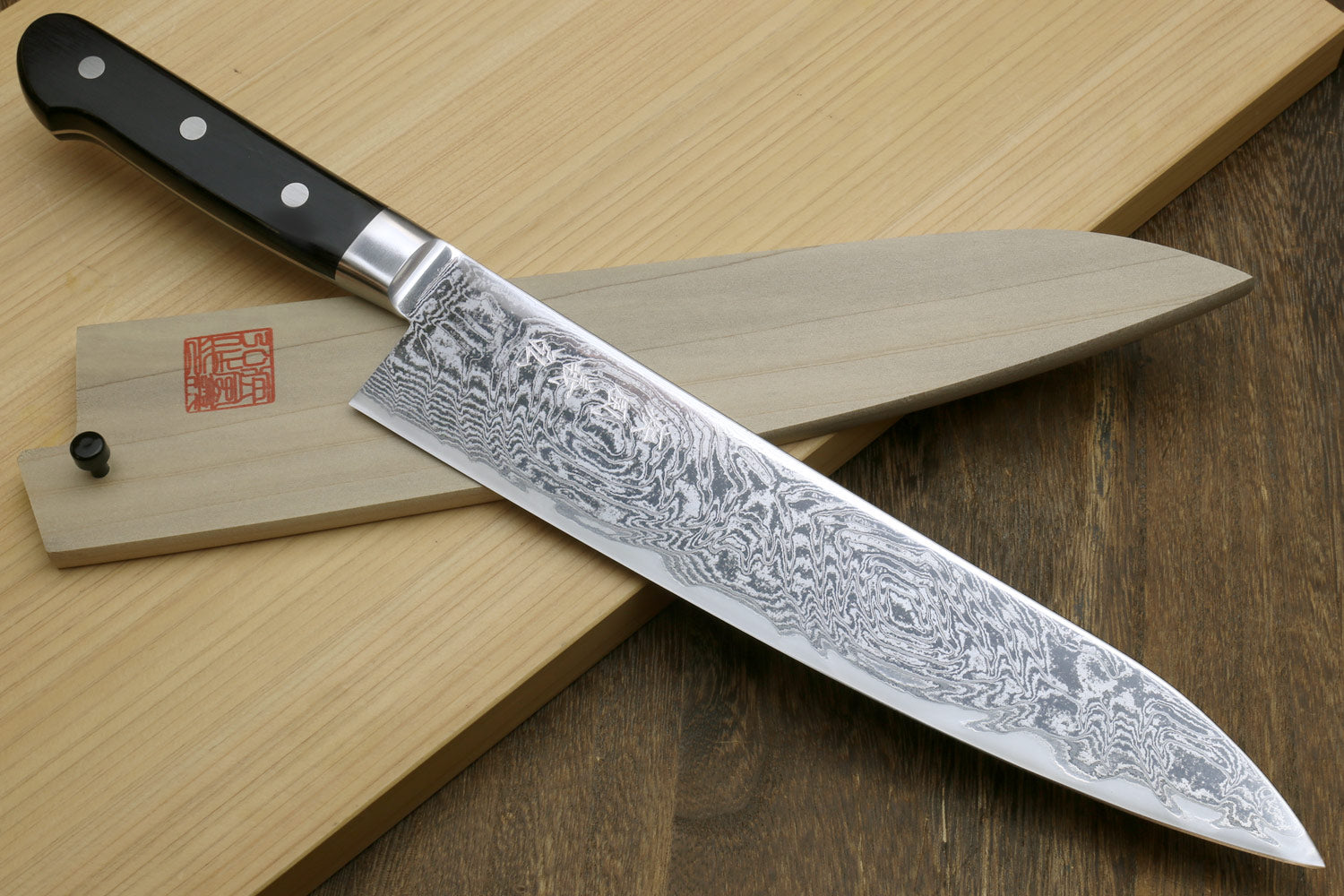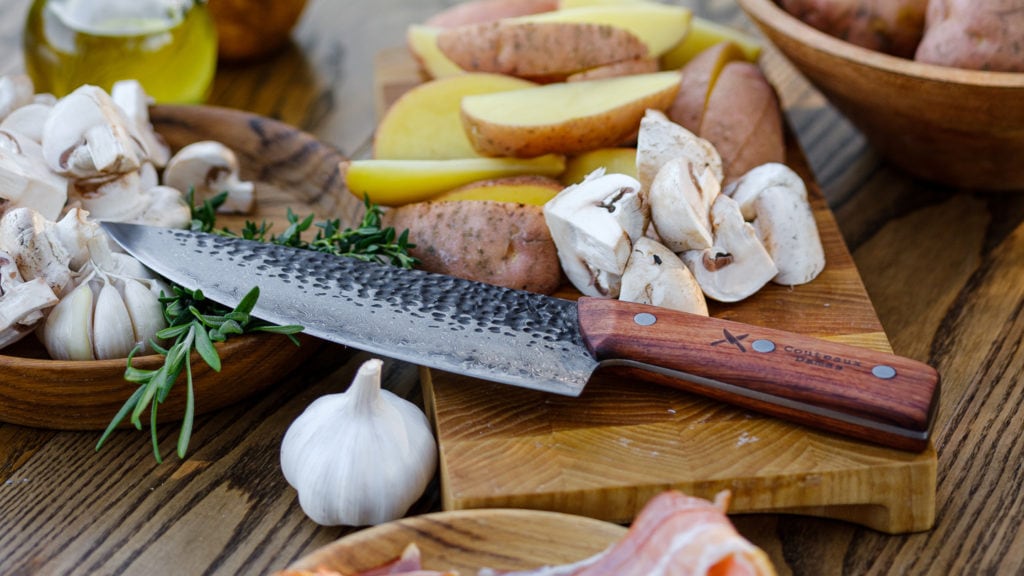The world of culinary arts is both vast and intricate, where the tools we use can shape the very essence of our craft. Among these tools, artistic Damascus knives hold a prestigious position. Their exquisite design, combined with functional prowess, makes them indispensable in the kitchens of professionals.
The allure of artistic Damascus knives begins with their rich history. Originating from the ancient art of Damascus steel crafting, these knives are more than just tools; they are a blend of tradition, craftsmanship, and innovation.

Understanding the Craft of Artistic Damascus Knives
The creation of Damascus knives is an art form. It involves layering different steels, forging them together at high temperatures, and etching the surface to reveal intricate patterns. These patterns are not just aesthetically pleasing but also signify the strength and resilience of the blade. This combination of beauty and function is what sets Damascus knives apart from the rest.
For kitchen professionals, these knives offer unparalleled sharpness and edge retention. They're designed to handle precision tasks with ease, enhancing the efficiency and quality of culinary preparations. To understand more about the uniqueness of these knives, check out Unique Damascus Knife Designs.
The Functional Benefits: Beyond Aesthetics
While the visual appeal of artistic Damascus knives is unquestionable, their benefits in functionality are equally impressive. The intricate patterns result from alternating layers of hard and soft steel, providing blades with a flexible yet durable edge. This ensures that chefs can slice through delicate ingredients without compromising the structure or aroma.
Moreover, these knives are honed to perfection, delivering razor-sharp edges that necessitate less frequent sharpening. They are also less prone to chipping, ensuring longevity even with continuous use. Further insights can be gleaned from articles like Damascus Blade Patterns.
Caring for Your Damascus Knives
Preserving the beauty and function of artistic Damascus knives requires proper care. Hand washing with gentle soap and immediate drying is recommended to prevent any corrosion. Occasionally oiling the blade helps in maintaining its sheen and preventing rust. For a thorough understanding of maintenance, refer to History and Care.
Storage is another crucial aspect. Using a wooden knife block or magnetic strip is advised to prevent blade damage. Ensuring that blades dont come in direct contact with other hard surfaces helps in maintaining their finely-tuned edges.
Elevating Kitchen Experience with Damascus Knives
In the world of professional cooking, the application of artistic Damascus knives transforms the very act of food preparation into a seamless experience. These knives not only boost the efficiency of cooking but also elevate the aesthetics of the process. Chefs find that the precision, combined with the blades unparalleled sharpness, brings forth an unmatched cooking experience.
By immersing oneself in the art and science of Damascus knives, culinary professionals can enhance their kitchen repertoire. Dive deeper into this topic by exploring the Hand-Forged Damascus Designs article for further insights.

FAQs about Damascus Knives
What makes Damascus knives special?
Damascus knives are revered for their beauty, durability, and sharpness. The unique pattern on each blade offers both aesthetic and functional superiority.
How should one maintain a Damascus knife?
These knives should be hand-washed, immediately dried, and occasionally oiled. Proper storage also prevents blade damage.
Why are Damascus knives preferred by chefs?
The combination of razor-sharp edges, longevity, and precision makes them a favorite among culinary experts.
This article contains affiliate links. We may earn a commission at no extra cost to you.


























